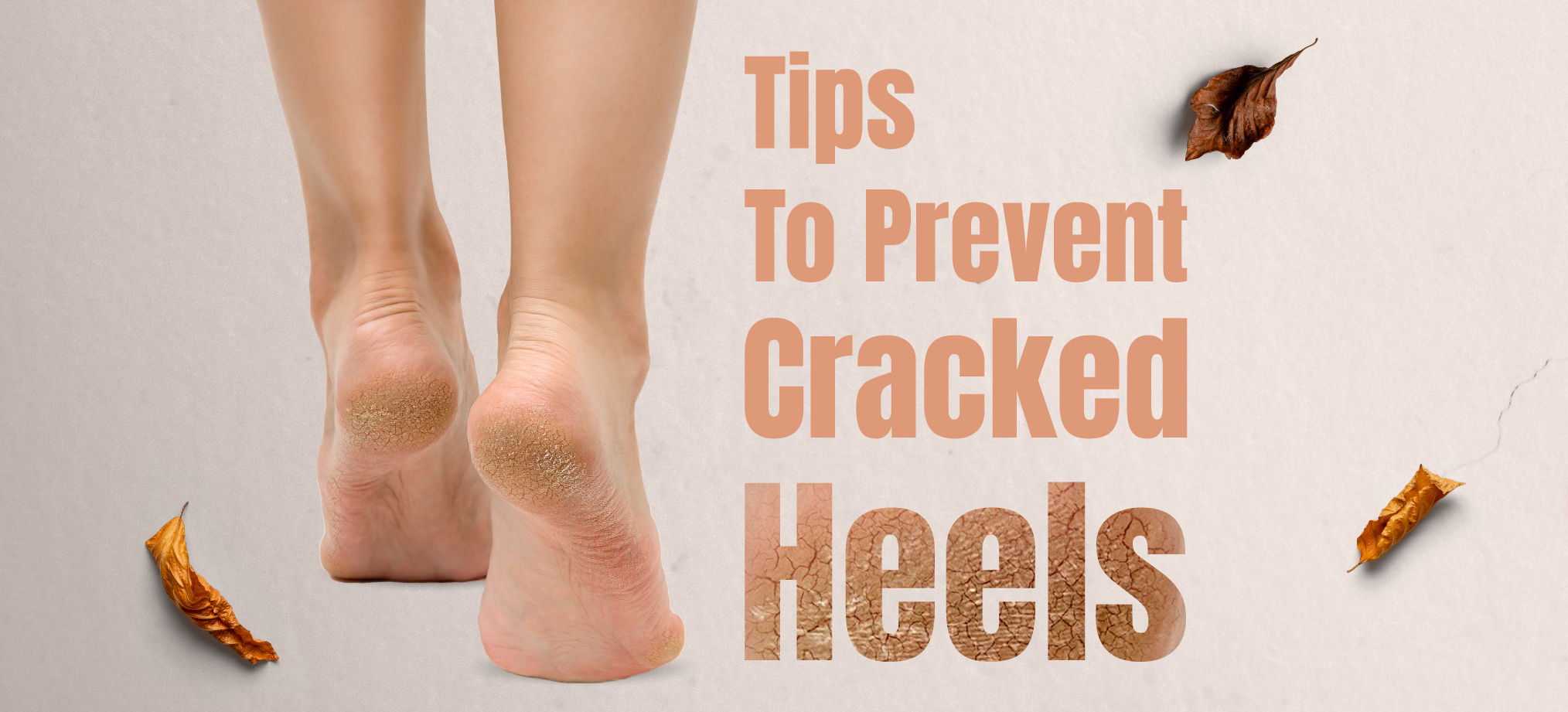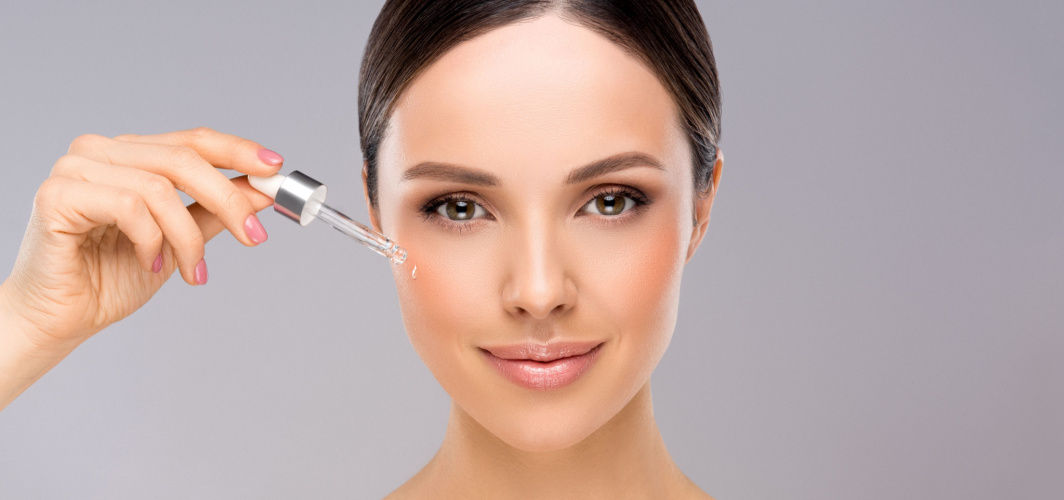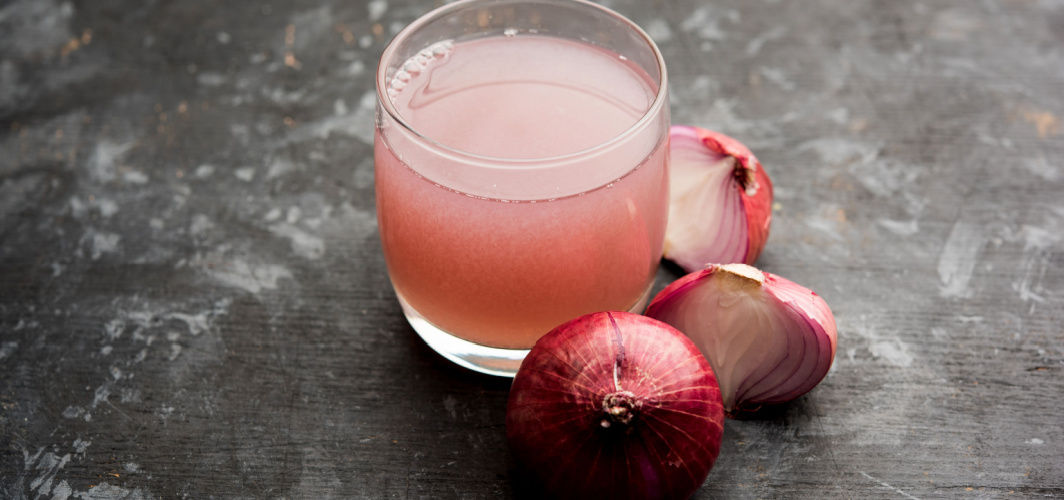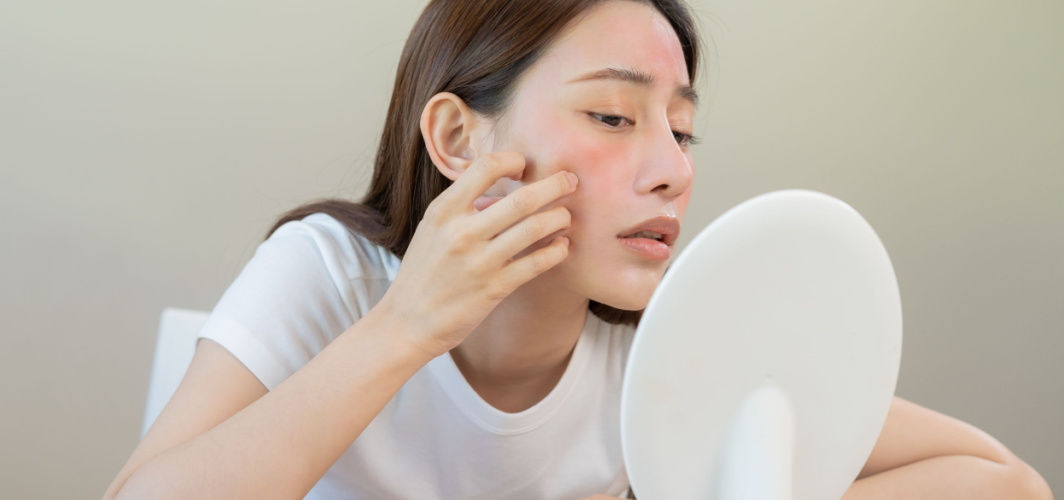Skin Care
Painful Cracked Heels? Here Are 5 Tips To Avoid Them
3 min read
By Apollo 24|7, Published on - 24 February 2023, Updated on - 19 May 2023
Share this article
0
17 likes

Often referred to as heel fissures, cracked heels are a common foot condition that can cause extreme discomfort and pain. Heels usually crack due to the hardening of the skin and lack of moisture. If not treated in its early stages the condition can cause yellow or brown calluses to develop around the edges of your heels. However, with proper care and nourishment, you can easily prevent your heels from cracking. In this article, we are going to discuss a few conventional home remedies that help you avoid cracked heels.
1. Keep yourself hydrated
Our skin loses water throughout the day, especially during the summer season. Hence, keeping yourself hydrated can go a long way to preventing cracked heels. You can carry a bottle with you as you continue your daily activities to ensure you’re properly hydrated.
2. Regularly moisturise your skin
A good moisturiser can help you both prevent and treat cracked heels. The ingredients such as petroleum jelly and glycerine help present in the moisturisers help lock in moisture in the skin. Furthermore, moisturizers minimise the loss of water from the skin by acting as a barrier. While some moisturizers have anti-inflammatory ingredients such as alpha hydroxy acid others have salicylic acid that helps shed dead skin. Applying the cream right after a bath will help your heels lock in the required moisture.
3. Avoid strong soaps or scented skin products
While it is important to keep yourself clean and free of germs, you must try achieving the same without involving a chemical-rich soap. Strong soaps or bars can dry your skin further which is why it is advised to use a mild cleanser to keep your feet moist. Scented skincare products that contain alcohol or retinoids can also be too harsh for your skin. Hence, it is very important to avoid these products and use the ones with emollients or natural oils.
4. Using a pumice stone against your skin
You can use a pumice stone to rub against your skin after you are done moisturising your feet. Pumice stones help reduce the ruggedness of your skin by keeping the dry areas or calluses down. If you are suffering from diabetes or have a disorder of the peripheral nerves then it is best to avoid using a pumice stone and ask for a doctor’s recommendation for alternatives.
5. Wear close-heeled shoes
Close-heeled shoes such as boots can help prevent cracked heels. Shoes of this type help in providing cushioning to the area of the problem. Ill-fitting shoes with open heels and thin soles can stress out that portion of your skin and lead to cracks. It is also advised to use padded cotton socks or orthotics recommended by a health professional to protect the soft tissue of the foot.
If you are careful enough then cracked heels can both be avoided and treated easily using the aforementioned home remedies. However, if you are suffering from a medical condition then you should seek the advice of your health provider. If your cracks are getting severe by the day then do not hesitate to seek medical attention as carelessness can result in an infection. If you need expert advice,
Consult Apollo's Expert Dermatologists
Medically reviewed by Dr Sonia Bhatt.
Skin Care
Leave Comment
Recommended for you

Skin Care
Face Serums 101: All That You Need To Know
Learn about all kinds of face serum benefits, including improved skin texture and brighter complexion. Also, find out how to select the right face serum for your specific concerns and use it for the best results.

Skin Care
Can Regular Use Of Onion Help Reduce Hair Loss?
Apparently, an eight-week scalp treatment with onion extract may trigger hair regrowth and control hair loss. Read to know more.

Skin Care
Rosacea Acne: Definition, Causes, Triggers, Symptoms, Treatments & Prevention
Discover rosacea acne, a chronic skin condition, along with its causes, triggers, symptoms, treatments, and prevention strategies.
Subscribe
Sign up for our free Health Library Daily Newsletter
Get doctor-approved health tips, news, and more.
Recommended for you

Skin Care
Face Serums 101: All That You Need To Know
Learn about all kinds of face serum benefits, including improved skin texture and brighter complexion. Also, find out how to select the right face serum for your specific concerns and use it for the best results.

Skin Care
Can Regular Use Of Onion Help Reduce Hair Loss?
Apparently, an eight-week scalp treatment with onion extract may trigger hair regrowth and control hair loss. Read to know more.

Skin Care
Rosacea Acne: Definition, Causes, Triggers, Symptoms, Treatments & Prevention
Discover rosacea acne, a chronic skin condition, along with its causes, triggers, symptoms, treatments, and prevention strategies.